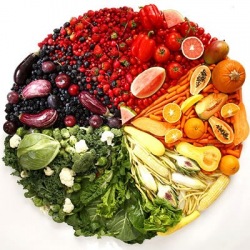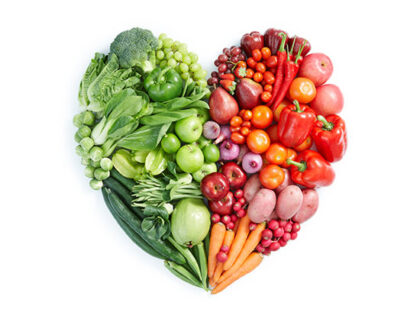
Description
Welcome to Food and Culture
Lessons
Assignments
General Information
Class time: Tuesday: 8:45-11:30AM
Class room: H 509 SGW
Office hours: Tuesday: 11:30AM – 1:00PM (by request)
Office Location: H-556
Territorial Acknowledgement
I acknowledge that Concordia University is located on unceded Indigenous lands. The Kanien’kehá:ka Nation is recognized as the custodians of the lands and waters on which we gather today. Tiohtiá:ke/Montreal is historically known as a gathering place for many First Nations. Today, it is home to a diverse population of Indigenous and other peoples. We respect the continued connections with the past, present and future in our ongoing relationships with Indigenous and other peoples within the Montreal community. (Indigenous Directions Leadership Group, Feb. 16, 2017) This course focuses on food and culture from decolonial, social justice perspectives. Students are encouraged to read the Red Paper on Land Back by the Yellowhead Institute.
Course Description from Concordia Calendar
This course is an introduction to the study of food from a cultural perspective. Themes may include a) archaeology of food production (domestication of plants and animals); b) class, cuisine, and the development of taste; c) food symbolism; and d) the political economy of food and hunger.
Course Description from Professor Erik
Food is an integral part of cultural studies. It is central to cultural rituals like feasts and festivals. It has catalyzed global resistance to capitalism, as seen in the food sovereignty movement. Food is embedded in beliefs and customs, such as religious diets like Kosher and Halal, and serves as a uniting force in the development of social economies and exemplified by food cooperatives. It has also been a central theme in countless cultural texts, films, and literature. Food helps us form an understanding of ourselves and the cultures we are part of; most importantly, it is what sustains us.
In this course, we will explore key themes related to food and culture, including meaning and practice, representation and identity, global and local food production, and food movements. A critical focus will be on diverse food economies: how it is produced, transformed, distributed, and consumed, as well as how food waste is managed in different parts of the world. We will analyze the role of multinational corporations like Bayer, examining the impacts of large-scale industrialized farming, monoculture, and the privatization of genetic resources. These practices have significant consequences, such as the use of GMOs and the resulting loss of biodiversity, reliance on fossil fuels and contributions to climate change, the health risks of glyphosate use, seed patents and the erosion of food sovereignty, and the depletion of water and food supplies.
We will also examine how various cultures and communities resist these negative outcomes. For example, we will explore the slow food movement in Italy and Ireland as a model for re-localizing food production, processing, and consumption (the “farm-to-plate” movement). We will study the food sovereignty movement, which gained prominence at the La Via Campesina assembly in Mexico in 1996 and has since spread globally. The Detroit Black Community Food Security Network will serve as a case study for reclaiming food sovereignty and food justice while combating food insecurity. Other topics include environmentally sustainable and socially equitable food practices, such as seed saving, Indigenous agricultural techniques, permaculture, rooftop gardening, and organic farming. Additionally, we will investigate how cultural beliefs and symbolism influence attitudes toward plants and animals in different parts of the world.
This course emphasizes experiential learning and the “practice” of food. Students will engage in hands-on activities related to food production, transformation, and waste management, fostering deeper connections to the subject matter. They will write about and discuss the cultural significance, meanings, and symbolism of these practices, using critical self-reflection and autoethnography to examine their roles within industrial and alternative food systems.
A major focus of the course is strengthening local food systems through community-campus engagement. Students will collaborate with community food initiatives to learn from those working to improve foodscapes at both micro and macro levels. Beyond critiquing the global food system, students will engage in action research to propose and implement practical improvements locally—and, if desired, internationally through online collaborations. They will explore ways to reduce food insecurity, advocate for food justice, and build food-sovereign communities.
Throughout the course, students will critically reflect on their participation in local and global food systems. They will also be encouraged to undertake action-research projects aimed at creating ethical interventions to improve campus and community foodscapes. These projects will focus on themes such as social justice, sustainability, food sovereignty, agroecology, and decolonial perspectives.
Learning Outcomes
By the end of the course, the students will:
Critically analyze food systems by examining the intersections of food, culture, and power structures in shaping food production, distribution, and consumption.
Explore the cultural significance of foodin rituals, community building, and identity formation, highlighting its symbolic and social meanings.
Assess the impact of food movementsby analyzing global initiatives like food sovereignty and community food security in response to industrial food systems.
Engage in experiential learningthrough hands-on activities in food production, transformation, and waste management to connect theory with practice.
Investigate food sovereignty and justiceby exploring how local communities resist corporate food systems and build equitable, (strong) sustainable food practices.
Connect global and local food issuesby analyzing multinational food systems and local efforts to create sustainable and just food systems.
Develop action research skillsby engaging in projects that address local food justice issues and collaborate with community organizations for practical solutions.
Critically reflect on personal food practicesand their broader social, cultural, and political contexts through written and spoken assignments.
Recognize viable alternatives to industrial food systemsby exploring agroecology, CSA programs, and participatory food systems that challenge industrial food practices.
Articulate critiques of global food systemsby examining the impacts of monocultures, food deserts, and environmental degradation.
Identify causes and consequences of food-related social and ecological problemsand propose solutions such as local food initiatives and food sovereignty.
Understand a plurality of food system approachesand their ability to address environmental degradation, food injustice, and social impact.
Communicate the history and philosophies of food movementsby linking past and present food movements to struggles for food sovereignty and environmental justice.
Use diverse food system tools and languageto critically analyze contemporary issues like food waste, hunger, and corporatization.
Apply diverse food system approachesto create ethical food practices that promote sustainability, health, and justice.
Move towards transformative food practicesby exploring food sovereignty, local systems, and decolonizing food systems.
Incorporate social justice and decolonial perspectivesin understanding food systems, including indigenous food sovereignty and dismantling inequalities.
Perform action researchto explore food sovereignty and system transformations from cultural and ecological perspectives.
Re-embed food systems into society and the biosphereby exploring models like permaculture and regenerative agriculture that reconnect food systems with the land and communities.
Identify planetary boundaries and ecological crisesin food production and consumption, ensuring ecological sustainability in food systems.
Comprehend degrowth perspectivesin food systems, questioning the need for continuous growth and advocating for reduced food waste and overconsumption.
Understand doughnut economicsin relation to food systems, balancing social equity and environmental sustainability within planetary limits.
Identify multiple forms of value in food systemsand compare conflicting values such as nutritional, cultural, ecological, and economic factors in food production and consumption
Instructional Method
This course will be conducted in person, fostering a collaborative and interactive learning environment. Each class will begin with a concise presentation and discussion led by Professor Erik, who will introduce key themes, share practical examples, and provide critical perspectives on weekly topics that go beyond the assigned readings.
Students are expected to complete the required readings before class and actively participate in discussions and hands-on activities. The course assignments are thoughtfully designed to:
- Cultivate critical perspectives on the intersections of food and culture.
- Encourage experiential learning through meaningful engagement with local food organizations.
- Empower students to explore and co-create pathways for campus-community food sovereignty and food justice through action research.
By combining theoretical insights with real-world applications, this course invites students to critically examine food systems and contribute to transformative change in their communities.
Required Course Materials
Students are required to complete the weekly readings before attending class. To ensure the workload is manageable, some weeks with heavier reading assignments will involve smaller reading groups, where Professor Erik will assign different chapters or sections to each group. This approach allows for a comprehensive discussion while making the readings more accessible. All required readings have been reserved through the Concordia Library for online access.
Course Schedule, Class Topics and Readings | |||
Date | Food Theme | Topics | Readings Due (please complete the readings before class) |
Jan 14 | Food for Thought | Introduction to Course | No Readings |
Jan 21 | Seeds | Introduction to Food and Culture | Counihan, C., Van Esterik, P, Julier, A. (2019) Food and Culture: A Reader, 4th edition, Routledge. – Introduction – Continuing the Salience of Food and Culture Recommended Reading: |
Jan 28 | Fermentation | Food Meaning and Practice | Counihan, C., Van Esterik, P, Julier, A. (2019) Food and Culture: A Reader, 4th edition, Routledge. Chapter 1 – Towards a Psychosociology of Contemporary Food Consumption Chapter 2 – The Culinary Triangle Chapter 3 – Deciphering a Meal |
Feb 4 | Baking Bread | Food Meaning and Practice | Counihan, C., Van Esterik, P, Julier, A. (2019) Food and Culture: A Reader, 4th edition, Routledge. Chapter 6 – Cooking Skills, the Senses, and Memory: The Fate of Practical Knowledge Chapter 7 – Race, Place and Taste: Making Identities Through Sensory Experience in Equador Chapter 8 – The Raw and the Rotten: Punk Cuisine |
Feb 11 | World Cuisine | Taste Around the World: Food Festival | Kimmerer, R. W. (2024) The Serviceberry: Abundance and Reciprocity in the Natural World, Scribner. |
Feb 18 | Food Preservation | Edible Identities | Counihan, C., Van Esterik, P, Julier, A. (2019) Food and Culture: A Reader, 4th edition, Routledge. Chapter 9 – Distinction: A Social Critique of the Judgement of Taste Chapter 10 – The Nourishing Arts Chapter 11 – Towards Queering Food Studies: Foodways, Heteronormativity and Hungry Women in Chicana Lesbian Writing |
Mar 4 | Vermicompost | Edible Identities | Counihan, C., Van Esterik, P, Julier, A. (2019) Food and Culture: A Reader, 4th edition, Routledge. Chapter 12 – A Way Outa No Way: Eating Problems Among African-American, Latina, and White Women Chapter 13 – ‘Mexicans’ Food Voice and Differential Consciousness in the San Louis Valley of Colorado. Chapter 14 – I Haven’t Eaten If I don’t Have My Soup and Fufu: Cultural Preservation Through Food and Foodways Among Ghanaian Migrants in the United States |
Mar 11 | Seedlings | Edible Identities | |
Mar 18 | Food, Festivals and Community | Food Movements | Chapter 1 – How Our Capitalist Food System Came to Be Chapter 2 – Food, A Special Commodify |
Mar 25 | Mycology | Food Movements | Chapter 3 – Land and Property Chapter 4 – Capitalism, Food and Agriculture |
Apr 1 | Foraging | Food Movements: Visit CultivAction Farm | Chapter 5 – Power and Privilege in the Food System: Gender, Race, and Class Chapter 6 – Food, Capitalism, Crises and Solutions |
Apr 8 | World Cuisine 2.0 | A Farewell Feast: Presentations and Discussions on Community-Campus Projects | Conclusion: Changing Everything: Food, Capitalism, and the Challenges of Our Time |
Course Assignments
Participation: The participation grade is based on attendance, involvement in discussions, engagement in classroom activities and completion of supplemental tasks. Students are expected to attend the course regularly and actively participate in discussions, demonstrating that they have completed and understood the assigned weekly readings.
Cultural Significance of a Food Blog/Essay (600-1000 words): Sudents are invited to participate in the Roots and Recipes initiative by creating a recipe and preparing a meal to bring and share at the Taste Around the World: Food Festival on February 11th.
The blog must critically analyze the cultural relevance of the food item they prepare, exploring cultural practices, beliefs, attitudes, and the networks and institutions involved in its production, distribution, and consumption. Students will provide a recipe for the dish they prepare and reflect on the significance of the food within specific cultural contexts. sources.
The blog must be written in a clear, concise, and engaging manner, addressing an appropriate audience with a basic understanding of food systems and cultural studies. Although the format is a blog, the content must be based on research rather than personal opinion. To achieve an A grade, the blog must include references to at least six course readings. Students with production skills may choose to create a video or podcast instead of a blog; however, this alternative must be approved by Professor Erik beforehand.
Edible Identities Blog/Essay (600-1000 words): Students will explore the relationship between food and identity, both collective and personal. The blog post should critically examine how food is intertwined with the formation and expression of identity, considering how specific foods or eating practices reflect personal, familial, or cultural connections. Additionally, students should analyze how food represents broader social, political, or historical contexts. Reflecting on how food has influenced or shaped their own identity, students are encouraged to explore how food serves as a form of personal or collective representation.
Although you may draw from personal experience, your analysis must be grounded in research, not speculation. Explore how food carries symbolic meanings tied to personal experiences, and support your insights with evidence from course readings and credible sources. Make sure to connect your observations to key themes discussed in the course. The blog should be well-written, concise, and engaging, aimed at an audience with a basic understanding of food studies and cultural identity. To earn an A grade, the blog must include references to at least six course readings. Students with video or podcast production skills may opt to create a multimedia project instead of a blog, but prior approval from Professor Erik is required.
Community-Campus Engagement (Autoethnography 600-1000 words): This assignment allows students to gain hands-on experience by getting involved with a campus or community food organization for six hours. Through this engagement, students will gain insight into the practical efforts of those working to create ethical economies and advocate for social justice. After their involvement, students will write an autoethnography reflecting on their personal experiences and critically analyzing their role within the community initiative.
During the Food, Festivals, and Community event on March 11, community food organizations will present their projects to the class. Following the event, students will select one organization to work with. The autoethnography should explore how their experience relates to broader themes such as food systems, social justice, and community-building, connecting their work to the course material, including A Foodie’s Guide to Capitalism and other relevant, reliable, and credible articles. Students should reflect on how food contributes to fostering sustainable and equitable communities.
Evaluation will be based on the depth of each student’s engagement, the quality of their reflection in the autoethnography, and the clarity of their contributions to the project. Students will also present an oral summary of their role, focusing on their individual contributions and how their engagement links to the broader themes of the course.
Evaluation
Name of Assignment | Due Date | % of final grade |
Participation | Ongoing | 15 |
Cultural Significance of a Food Blog/Essay | February 18 | 30 |
Edible Identities Blog/Essay | March 18 | 30 |
Community-Campus Engagement | April 8 | 25 |
Grading System
A+ | 95 – 100 | B+ | 80 – 84.9 | C+ | 67 – 69.9 | D+ | 57 – 59.9 | F | 0 – 49 |
A | 90 – 94.9 | B | 75 – 79.9 | C | 63 – 66.9 | D | 53 – 56.9 | NR | No report |
A- | 85 – 89.9 | B- | 70 – 74.9 | C- | 60 – 62.9 | D- | 50 – 52.9 |
|
|
Extraordinary Circumstances
In the event of extraordinary circumstances and pursuant to the Academic Regulations, the University may modify the delivery, content, structure, forum, location and/or evaluation scheme. In the event of such extraordinary circumstances, students will be informed of the changes.
Class Cancellation
Classes are officially considered cancelled if an instructor is 15 minutes late for a 50-minute class, 20 minutes late for a 75-minute class, or 30 minutes late for longer classes.
Intellectual Property
Content belonging to instructors shared in online courses, including, but not limited to, online lectures, course notes, and video recordings of classes remain the intellectual property of the faculty member. It may not be distributed, published or broadcast, in whole or in part, without the express permission of the faculty member. Students are also forbidden to use their own means of recording any elements of an online class or lecture without express permission of the instructor. Any unauthorized sharing of course content may constitute a breach of the Academic Code of Conduct and/or the Code of Rights and Responsibilities. As specified in the Policy on Intellectual Property, the University does not claim any ownership of or interest in any student IP. All university members retain copyright over their work.
Behaviour
All individuals participating in courses are expected to be professional and constructive throughout the course, including in their communications.
Concordia students are subject to the Code of Rights and Responsibilities which applies both when students are physically and virtually engaged in any University activity, including classes, seminars, meetings, etc. Students engaged in University activities must respect this Code when engaging with any members of the Concordia community, including faculty, staff, and students, whether such interactions are verbal or in writing, face to face or online/virtual. Failing to comply with the Code may result in charges and sanctions, as outlined in the Code.
Late Assignment and Submission Policy
Unless you are given permission in advance, late assignments will not be accepted without adequate documentation of medical or personal emergencies. All assignments must be submitted in hard copy on the due date. Assignments that are received electronically will have 30% deducted from the grade of the assignment.
Academic Integrity
Academic integrity means that every student must be honest and accurate in their work. The Academic Code of Conduct includes rules and regulations students must follow. Unacceptable practices include the following
- Copy from ANYWHERE without saying from where it came.
- Omit quotation marks for direct quotations.
- Let another student copy your work and then submit it as his/her own.
- Hand in the same assignment in more than one class without permission.
- Have unauthorized material in an exam, such as cheat sheets, or crib notes. YOU DON’T HAVE TO BE CAUGHT USING THEM – JUST HAVING THEM WILL GET YOU INTO TROUBLE!
- Copy from someone else’s exam.
- Communicate with another student during an exam by talking or using some form of signals.
- Add or remove pages from an examination booklet or take the booklet out of an exam room.
- Get hold of or steal an exam or assignment answers or questions.
- Write a test or exam for someone else or have someone write it for you.
- Hand in false documents such as medical notes, transcript or record.
- Falsify data or research results.
PLAGIARISM: The most common offense under the Academic Code of Conduct (see link below) is plagiarism, which the Code defines as “the presentation of the work of another person as one’s own or without proper acknowledgement.”
This could be material copied word for word from books, journals, internet sites, professor’s course notes, etc. It could be material that is paraphrased but closely resembles the original source. It could be the work of a fellow student, such as an answer on a quiz, data for a lab report, or a paper or assignment completed by another student. It could be a paper purchased through one of the many available sources. Plagiarism does not refer to words alone. It can also refer to copying images, graphs, tables, and ideas. Plagiarism is not limited to written work. It also applies to oral presentations, computer assignments and artistic works. Finally, if you translate the work of another person into French or English and do not cite the source, this is also plagiarism. In simple words: DO NOT COPY, PARAPHRASE OR TRANSLATE ANYTHING FROM ANYWHERE WITHOUT SAYING FROM WHERE YOU OBTAINED IT!
Take care to inform yourself of the rules, regulations and expectations for academic integrity.




